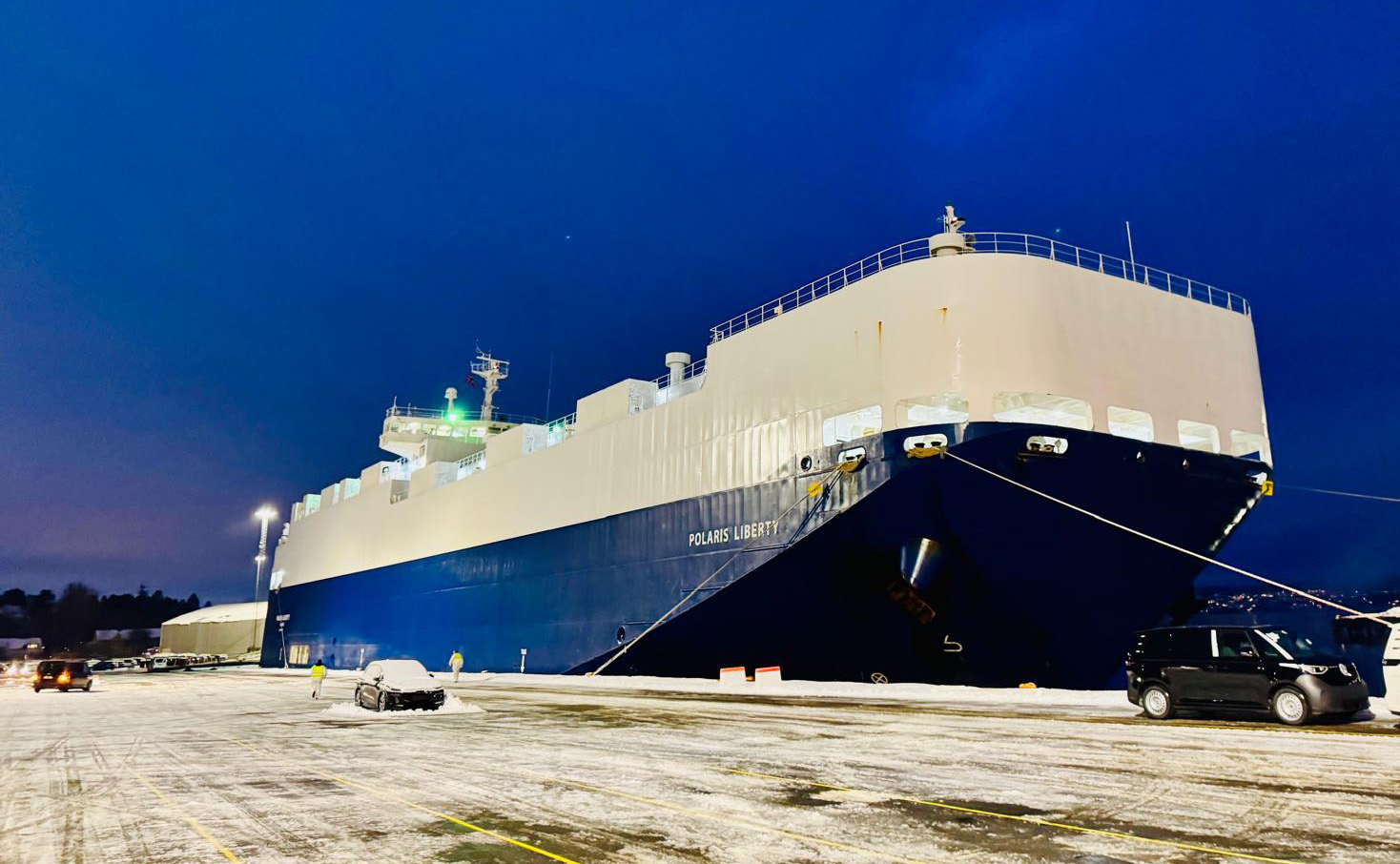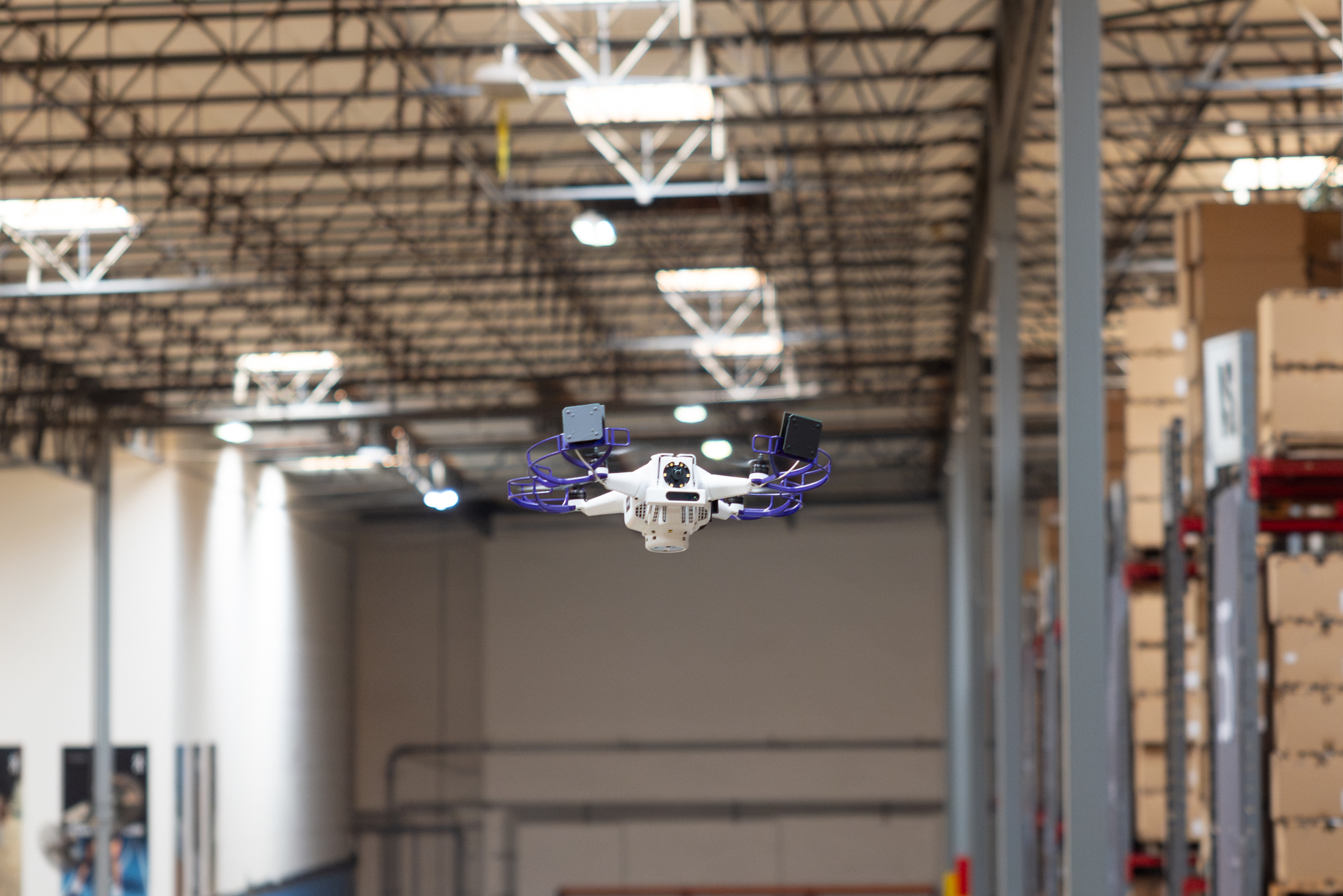As part of a company-wide digital transformation to overcome labour shortages, a leading Japanese 3PL company has commissioned an AirRob automated warehouse storage system from Libiao Robotics to serve its eCommerce business. The AirRob system is located in the company’s newly-built warehouse in the Tokyo metropolitan area, providing it with automated storage and retrieval functions for shoes, clothing, cosmetics and other products. This introduction is not only the company’s first installation of an automated tote handling system, but also the first AirRob system to operate anywhere in Japan.
Commenting on the decision to specify AirRob for the company’s new warehouse, its Business Manager said: “As Japan’s population declines, we need to expand our business scope. In order to strengthen the competitiveness of our logistics business, we focus on certain industries, especially improving our ability to handle a variety of small quantities of goods. In this trend, we expect to achieve the dual goals of high storage density and high operating efficiency, so when we first saw AirRob, we felt that this was exactly the solution we needed.”
Regarding the actual operation of the system, his colleague, the Director of the 3PL’s Innovation Promotion Office, expressed great satisfaction: “If we hadn’t used the AirRob system, we would have required at least 300 tsubos (about 1,000 square metres) of space, and the workers’ movement routes would have been very long, which takes a lot of time. Now we only need about 100 tsubos (about 330 square metres) to solve the storage problem. At the same time, employees don’t require too much training. They can operate by just staying at the workstation and scanning the code, so even those who join the company on the same day can start working straight away.”
As the warehouse is located on the third floor of a building, it was considered difficult to use automated equipment. However, in this regard the Business Manager said: “Even though we only have 4.5 to 5 metres of floor height here, we can store 6,000 SKUs in a 1,000-square-metre space. During the installation and deployment process, there was almost no change to the entire infrastructural environment, which has been a huge advantage.” Furthermore, AirRob’s lightweight design meant it could be installed on an upper storey of the Tokyo warehouse without compromising the load capacity of the floor.
Return on Investment
As Japan is one of the markets that is particularly affected by a labour shortage, the introduction of automated equipment must be precisely calculated. “Under the traditional model, the company often needed three forklift operators to handle 6,000 SKUs of goods , which was labour-intensive and time-consuming,” added the Business Manager. “After the introduction of the AirRob system, only one worker now operates calmly in the same working space. Not only has the labour cost been sharply reduced, but the operating efficiency has also increased exponentially, allowing the company to witness significant economic benefits in a short period of time. In addition, there is no need for additional electricity to drive air conditioners and other equipment in the storage area to maintain the environment, which effectively reduces energy consumption. After deploying this system, if expansion is required in the future, there is no need to re-lay power lines, etc.”
As part of its carefully planned mid-term business strategy, the leading 3PL company outlined two core development directions for its business. On the one hand, its focus is on analysing and strengthening the unique advantages of its logistics business by optimising processes and improving service quality; on the other hand, it is focusing on horizontal expansion, taking logistics as its foundation and actively exploring diversified business expansion paths to grow the company’s business territory.

In actual business operations, the company is keenly aware that it has accumulated rich experience in the field of multi-variety, small-batch cargo handling and this is where it has a unique advantage. It has found that the outstanding characteristics of the AirRob system are perfectly matched with this advantage. Its flexible storage architecture and efficient and smooth operation process not only meet the current small-batch and high-frequency logistics needs, but also offers strong scalability, providing a solid guarantee for the continued growth of future business and the richness and diversity of categories.
Logistics Technology Innovation
Over the years, this 3PL company has been at the forefront of logistics technology innovation and has worked hand-in-hand with its partners. From the initial introduction of the Libiao T-Sort 3D system at start of its exploration of automated logistics, through to the upgrade of the system in 2021 to optimise operations, mutual running-in and trust have gradually increased during this process. After initially deploying the T-Sort 3D system, the company experienced a significant improvement in sorting efficiency, saving 57% of space and helping it to become more and more receptive to Libiao’s solutions.
The addition of the AirRob system has now pushed this cooperation to a new level, leading the 3PL’s Director of the Innovation Promotion Office to say: “We still hope that Libiao can continue to launch innovative new products so that we can introduce them and turn them into our competitive advantage.”
At a ceremonial opening ceremony, Ms. Xia Huiling, CEO of Libiao Robotics, said via video link: “Today is not only the launch of a project, but also represents your attempts and recognition of new technologies. This cooperation is just a starting point. In the future, we will continue to work with you to create better solutions.”
The AirRob installation at this 3PL giant is the first of several new AirRob projects being installed in Japan in 2025, as warehouse robotics pioneer Libiao continues to achieve wider global acclaim for the many advantages AirRob holds compared to other AirRob-like systems.
similar news
Airrob – Future Warehousing System







